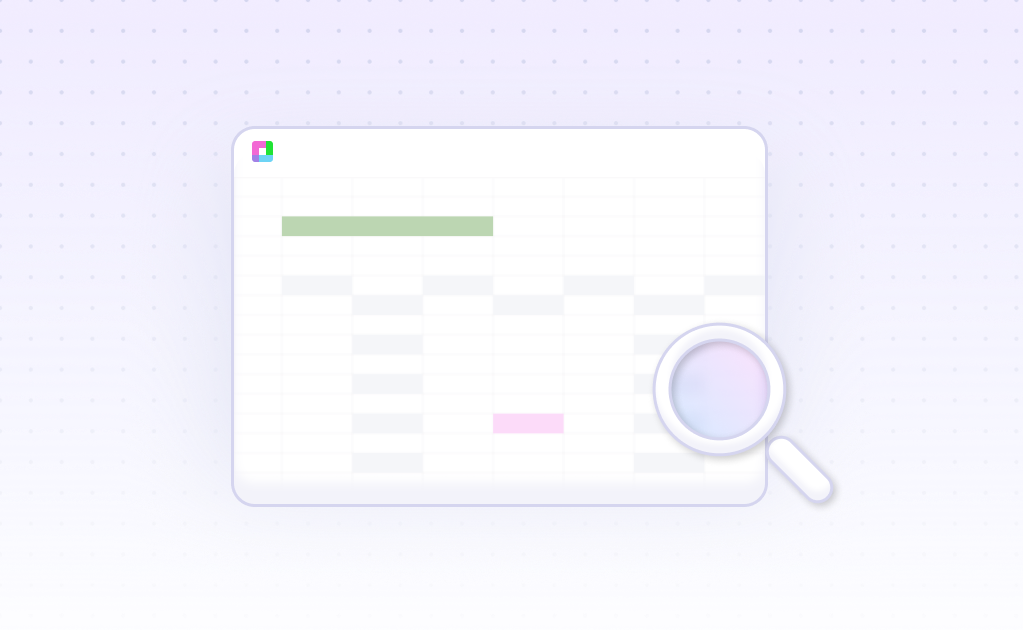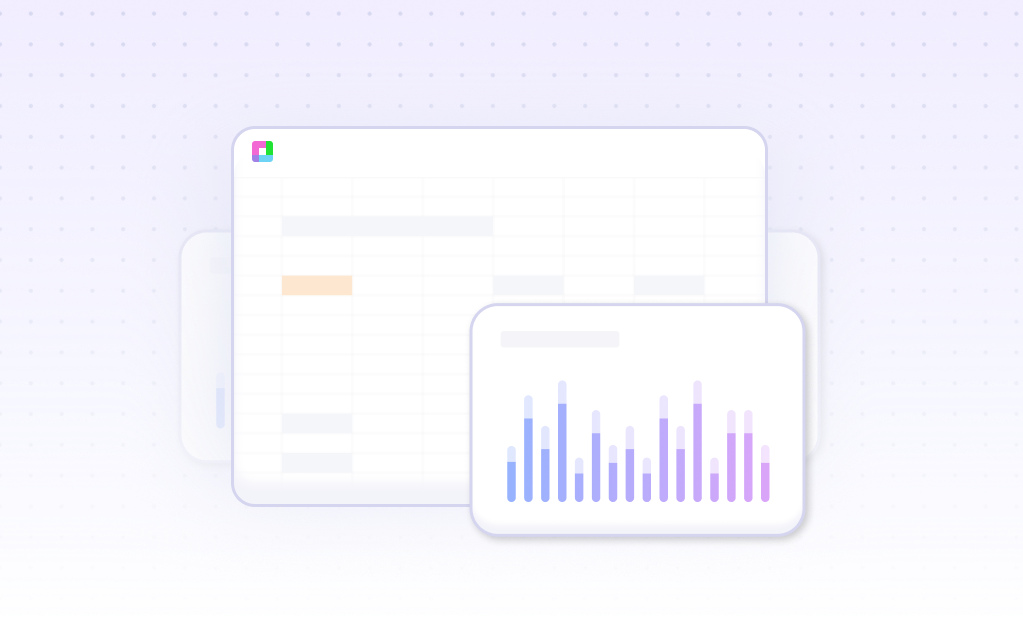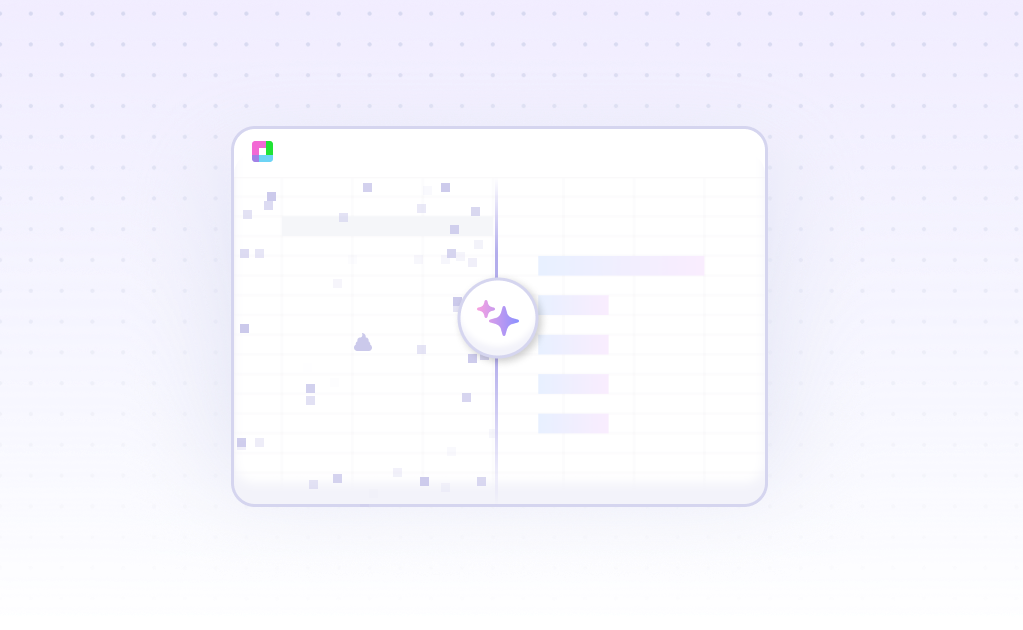
Introduction
Horizontal analysis compares financial statements over time to uncover trends, growth rates, and future insights. By analyzing historical data, businesses can evaluate their financial performance against competitors and distinguish between trends and one-off events. The process involves calculating dollar changes by subtracting base year values from analysis year values, then determining percentage changes.
While Excel remains a common tool for financial analysis, modern AI alternatives like Sourcetable streamline the process. Sourcetable combines spreadsheet functionality with an AI chatbot that responds to natural language commands and offers data-driven suggestions. Its integration capabilities and automated features accelerate formula creation, charting, and data cleaning.
Learn how Sourcetable enables rapid vertical and horizontal analysis without requiring advanced Excel skills.
Sourcetable: Superior Horizontal & Vertical Analysis
Sourcetable provides powerful horizontal analysis capabilities that give it an edge over traditional spreadsheet tools. Its automated percentage change calculations streamline trend analysis, while its robust seasonality handling helps companies track performance fluctuations accurately.
Key Analysis Advantages
Sourcetable excels at identifying outliers and unusual patterns in financial data, enabling managers to quickly investigate variances. The platform's ability to project future performance through horizontal analysis makes it invaluable for financial planning.
Sourcetable vs Excel Comparison
While both Sourcetable and Excel offer core spreadsheet functionality like calculations, charts, and multi-user collaboration, Sourcetable's specialized horizontal analysis tools provide deeper insights. Its audit trail feature ensures accuracy and accountability in financial analysis.
Sourcetable combines spreadsheet analytics with advanced trend detection, making it the superior choice for companies seeking comprehensive financial analysis capabilities.
Benefits of Vertical and Horizontal Analysis with Sourcetable
Why Vertical and Horizontal Analysis Matter
Vertical and horizontal analysis help businesses identify trends, inform decisions, and drive continued success. Vertical analysis simplifies complex financial statements by highlighting proportional significance of line items, making it easier for stakeholders to understand business performance. Horizontal analysis reveals growth patterns, identifies potential concerns, and enables comparison against industry benchmarks.
Using Sourcetable vs Excel for Financial Analysis
While Excel remains popular with over a billion users, Sourcetable's AI-powered platform offers significant advantages. As an AI-enhanced spreadsheet that integrates with Excel and Google Sheets, Sourcetable accelerates formula creation, charting, and data cleaning through its intelligent chatbot interface.
AI-Powered Advantages
Sourcetable streamlines financial analysis through automated data entry, complex calculations, and data visualization. The platform reduces human error while improving efficiency and accuracy. Its AI capabilities identify patterns, generate insights, and create detailed visualizations faster than traditional spreadsheet methods.
By combining vertical and horizontal analysis capabilities with AI-powered automation, Sourcetable enables faster, more accurate financial decision-making while improving operational efficiency and communication.
Vertical and Horizontal Analysis with Sourcetable AI Spreadsheets
Vertical Analysis Examples
Sourcetable's AI capabilities analyze vertical performance metrics across financial periods. For example, you can calculate advertising expenses as a percentage of sales, where $500/$17,084 = 2.93% in 2011 compared to $400/$16,680 = 2.40% in 2010. Similarly, motor vehicle expenses analysis shows $360/$17,084 = 2.11% in 2011 versus $20/$16,680 = 0.12% in 2010.
Horizontal Analysis Examples
Sourcetable enables horizontal analysis across time periods with automated calculations. For instance, cash account analysis from 2010 to 2011 shows a dollar change of $540-$747 = -$207 and percentage change of ($540-$747)/$747 = -28%.
AI-Enhanced Analysis Features
Sourcetable's AI assistant interprets CSV data, creates real-time collaborative dashboards, and generates powerful visualizations. The platform improves forecasting accuracy, optimizes investment strategies, and analyzes complex datasets faster than traditional spreadsheets while minimizing human error.
Use Cases for Vertical and Horizontal Analysis with Sourcetable
Automated Performance Analysis |
Use Sourcetable's automatic formula generation to calculate vertical analysis percentages like |
Financial Health Assessment |
Leverage AI-powered data validation and cleaning to ensure accurate balance sheet analysis. Sourcetable generates interactive charts showing vertical proportion changes of assets, liabilities, and equity over time. |
Trend Forecasting |
Combine horizontal analysis with AI predictive modeling to forecast future financial performance. Python integration enables advanced statistical analysis of year-over-year changes across multiple periods. |
Comparative Decision Support |
Utilize automated reporting to compare vertical and horizontal analyses across different business units. AI pattern recognition highlights significant variances and provides data-driven recommendations for strategic decisions. |
Frequently Asked Questions
What is vertical and horizontal analysis and how can Sourcetable help with it?
Vertical and horizontal analysis are financial analysis techniques that Sourcetable can automate. Using APIs to access financial data, Sourcetable can analyze Income Statements for revenue trends over time (horizontal analysis) and Balance Sheets for proportional analysis of assets and liabilities (vertical analysis). Sourcetable's AI copilot helps users perform these analyses through natural language conversation.
How does Sourcetable make financial analysis easier compared to traditional spreadsheets?
Sourcetable combines the familiar A1 notation and cell-based referencing of Excel with powerful AI capabilities. It syncs with over 100 business applications, processes billion-row datasets in sub-seconds, and updates models in near-real-time. Users can upload CSV files and talk to their databases directly, while the AI copilot assists with spreadsheet work and analysis.
What technical capabilities does Sourcetable offer for advanced financial analysis?
Sourcetable offers over 500 formulas and functions, supports 3D and 4D data types, and can perform vector queries and transformations. It uses cloud computing to accelerate calculations and can analyze historical data to project future performance. The platform integrates with financial data APIs to access reliable data for income statements, balance sheets, and cash flow analysis.
Conclusion
Horizontal analysis in Excel provides powerful insights into financial performance over time, revealing growth trends and enabling forecasting. By comparing multiple years of historical data, businesses can evaluate their standing against competitors and distinguish between trends and one-off events.
While Excel remains a viable tool, Sourcetable's AI capabilities automate routine analysis tasks and enhance data processing. The platform connects directly to source tables for ledger definitions, business units, and calendar periods, streamlining the analysis workflow. AI-powered features detect patterns faster than manual analysis, while providing real-time monitoring and fraud protection.
Experience the combined power of Excel and AI for yourself by trying Sourcetable's vertical and horizontal analysis tools at sourcetable.com/signup.
Recommended Analysis Guides
Connect your most-used data sources and tools to Sourcetable for seamless analysis.
Frequently Asked Questions
If your question is not covered here, you can contact our team.
Contact Us




